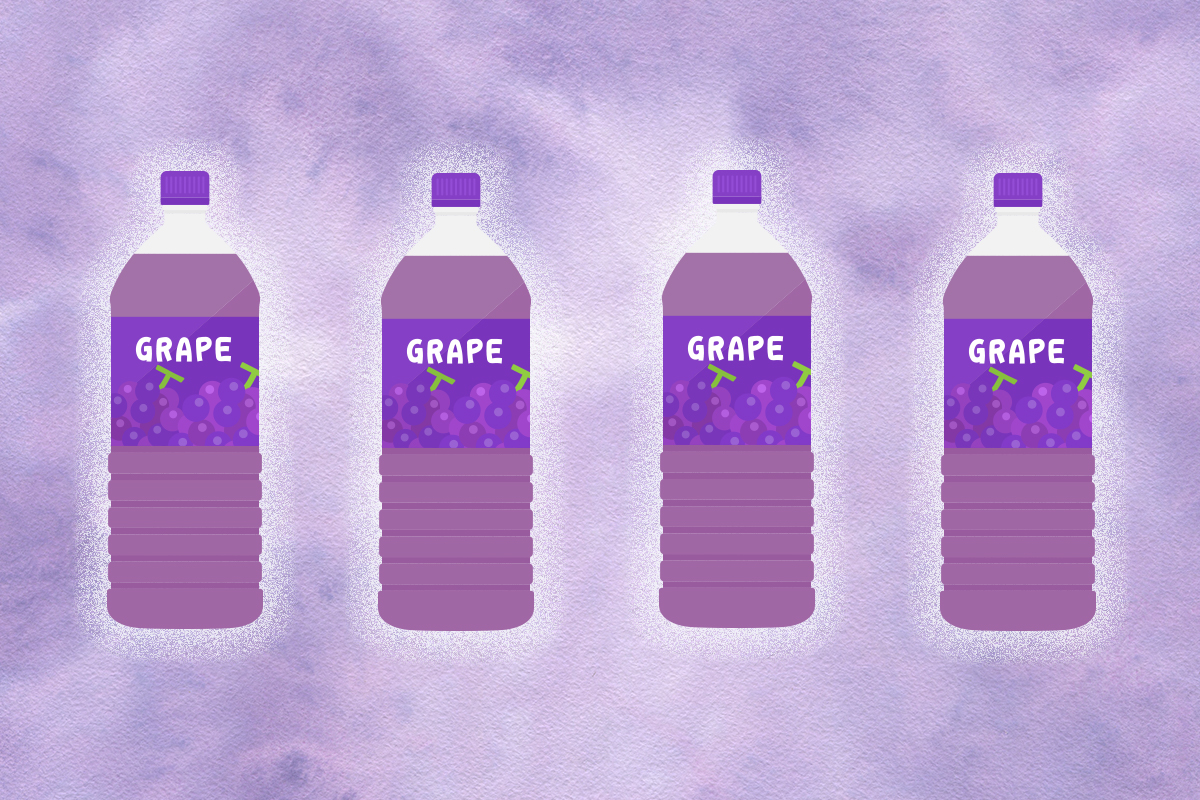In 2018, I woke up with a splitting headache the morning after my friends’ Passover seder. I felt queasy as I tried to remember any of the stupid things I had said.
“Damn, we drank too much Kedem,” I thought.
This was my first grape juice hangover.
I had only known Alex for about six months at this point, but my new friend had already done the greatest thing you could do for a Jew in recovery: She stayed sober during a Passover seder for me. She and her husband were hosting, and I had been so nervous to ask her if I would be the only one not drinking the traditional four cups of wine. I was genuinely shocked when she volunteered to stay sober to make me more comfortable.
It was my first Passover since I moved from New York City to Portland, Maine, and it was also my first one in recovery from substance use disorder. When you’re in recovery, firsts are big. Getting through your first date or your first wedding without alcohol feels like a major triumph. When you’re Jewish and in recovery, getting through your first Passover seder without alcohol feels like a miracle.
I didn’t grow up particularly religious, but with every major life transition, I seek the comfort of Jewish rituals and their emphasis on community. In the years right after graduating college, I probably went to more services than I ever had in my life. (That said, for every Tribe Shabbat I attended in 2017, the free wine was 95% of my motivation. I literally had shingles once and still showed up. That, my friends, means you have A Problem.) So when I moved to Portland, five months sober and looking for a change of pace, I immediately set out to find the Jews.
I met my first friends in Portland through the Jewish Community Alliance of Southern Maine, where I ended up working about a year later. While at the JCA, I had the opportunity to attend a Moishe House retreat on Passover seders. By that time, I was almost two years sober. I had already been thinking about building a recovery-oriented seder because I saw a lot of parallels between the recovery process and the story of Exodus. The retreat gave me the confidence to put those thoughts into action.
I spent the next few weeks researching existing Passover materials that addressed recovery. I ran into a lot of problematic, outdated language, and most of the content was rooted in 12-step recovery programs, like the Anonymous Haggadah, published in 1998 by JACS (Jewish Alcoholics, Chemically Dependent Persons, and their Significant Others). Seeking a more modern haggadah that wasn’t affiliated with a specific program, I decided to adapt my own, which I used to host a small seder at the Portland Recovery Community Center. I didn’t previously know anyone who attended except for Alex, who once again braved a grape juice hangover with me.
If you had told me in 2017 that I was going to develop and lead an intimate conversation on recovery with strangers in two years, I would have been appalled. When I got sober in New York, I did it with the help of my therapist and psychiatrist. The idea of going to meetings didn’t even cross my mind. To me, sobriety was not a group project; I had to do it myself. I didn’t consider myself a “person in recovery” — I was just a person who had stopped drinking.
But as I learned more about substance use disorder and as I made friends in the Portland recovery community, I realized that I had been reluctant to identify as “in recovery” because I had internalized the stigma of substance misuse. I had almost missed out on the love, support, and understanding of an entire group of people because I thought my struggle was something to hide, something I had to fix on my own.
Processing trauma as a community is key to both Passover and recovery. Granted, there are a million different types of recovery meetings (shout-out to my SMART Recovery group) and there are just as many ways to run a seder. Still, the basic themes and goals are the same. At a seder we say, “We were once slaves in Egypt,” and in recovery we acknowledge, “We were once controlled by a substance.” Now we are free, but we set aside this sacred time to remember the tears and bitterness of our past. We honor our perseverance in the face of obstacles. We express gratitude for all of the small miracles that added up to our liberation. Maybe we sing a silly song about a goat (depends on the recovery program). Most importantly, we practice empathy. Just as everyone at a seder is supposed to feel as if they are an Israelite fleeing Egypt, everyone in a recovery meeting identifies with each other’s current and past struggles to find sobriety.
A Passover seder is a roller coaster of sadness, joy, gratitude, and boredom, but the fact that we go through every twist and turn with other people makes it bearable, even fun at times. Sharing our emotions with others is critical for those of us in recovery, too. We often say the opposite of addiction is connection, and as the pandemic continues to force us into isolation, those lifesaving moments of compassion from others become more difficult to find. As a result, the recovery community has experienced unbelievable loss in the past year as overdose deaths have skyrocketed. I lost someone I love to an overdose last September, and I found myself posting about him on Instagram constantly because the grief was too much to handle on my own. My instincts have completely shifted from keeping difficult things to myself to trusting that my community will help me carry the weight of enormous, complicated emotions.
Whether we are remembering the slavery of our ancestors, grieving a loved one, or resisting the urge to use a substance, having the opportunity to do so openly, with the support of our friends and families, makes a huge difference.
It took me years to learn but, in Judaism and in recovery, no one is expected to make it to the land of milk and honey on their own. The novelty of a Zoom seder may have worn off, but the challenges of the pandemic haven’t, whether you’re struggling with substance misuse or not. Take advantage of this opportunity to lean on each other. If this is your first Passover in recovery, tell your people. Share your fears. Find your Alex. You may be surprised to learn how many people want to help you.
Likewise, if you know people in recovery, check in with them. Listen to them. Stay sober with them. They may not know just how important your support is until they know they have it.
If you or someone you know is struggling with substance use, check out SAMHSA’s national helpline, 1-800-662-HELP (4357), as well as their website for more resources.



